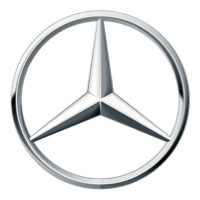
About the Mercedes-Benz 300E
Back in 2018, I was just gaming when my dad texted me a picture of a rather familiar W124 being washed. When asked, he simply replied “our new toy.” Of course, it was short lived – I’ll explain why in a bit. However, it does mean that I got the chance to return to one of my highlights of my childhood – this immaculate 1989 Mercedes-Benz W124 300E-24.
What set it apart from the W124s offered in Malaysia is its 3.0-litre DOHC 24-valve straight-6 M104 engine pushing out 220 horsepower and 265N.m of torque, mated to the typical 4G-TRONIC 4-speed torque converter automatic gearbox – allowing the car to be propelled from 0 to 100km/h in under 8 seconds.
How did I end up with it?
It was originally a UK model that was imported to Malaysia in the mid-1990s and from the first Malaysian owner to the current owner, the car has always been within my dad’s circle of friends – including his dad, his late brother and his cousin. This means that at various points within my childhood, I have been in this very car, together with countless of W126 and W140 S-Classes of the day.
As I mentioned earlier, I did get the chance to drive the W124 300E-24 eventually in 2018, thinking that my dad has decided to buy it from his friend again. However, he promptly returned it back shortly after due to issues with the fuel divider and the astronomical price to fix it and source it, which is extremely difficult to get in the first place. It’s a shame because when the car is in good working order, it is amazing. Allow me to elaborate.
What is it like to drive?
If you’ve driven an old Benz, you know exactly what to expect – solid, reassuring feel when behind the wheel. My current W124 260E feels the same way, even down to that weird throttle pedal that is stiff for some reason – a common old Benz trait. The automatic transmission serves as a reminder how far gearbox technology has come, with every gearchange greeting you with a light ‘thunk.’ It isn’t faulty – it’s just how the gearbox works.
The steering may not offer much in terms of feedback, but it still inspires confidence when chucking the car around corners. It handles well for a big old boat, being able to take corners at reasonably high speeds. Of course, body roll is present, but the particular 300E-24 has been fitted with lowering springs, thus improving the handling even further. Despite that, this car is a comfortable cruiser as it rides smoothly and is pretty well-insulated. You can drive it over long distances and not only you won’t notice the hours passing by, your passengers will fall asleep soundly, too.
However, these are the driving attributes I can expect from my current 260E as well. Where this 300E-24 differs is obviously the engine. While the 260E feels pretty strong from the low-end, it runs out of puff higher up in the rev range. This is typical of a SOHC engine. In contrast, the DOHC engine of the 300E-24 means that the even at high RPMs, the car still has plenty of power in reserve. Not only that, the engine revs all the way up to 7,000 RPM and believe me, it sounds absolutely glorious. I drove a W124 E280 – which also utilizes an M104 but displacing 2.8-litres – only revs up to 6,500RPM and the W124 260E’s M103 only manages 6,000RPM. Not that you can rev that high all the time, but when the opportunity presents itself, it’s just rewarding. Of course, the road tax is mighty expensive at RM2,130 a year, but you can apply for classic car road tax and get an 80% discount.
Unfortunately, I can’t comment on the fuel consumption as I didn’t bother taking note of it. But my guesses is that it probably goes through its fuel quite quickly. Maybe it’s my aggressive driving back then, who knows?
Rating:
Total Score: 4/5
Performance: 4/5
Quality: 5/5
Space: 3/5
Ride Comfort: 5/5

To summarise, the 1989 Mercedes-Benz W124 300E-24 was – to some extent – a sports car in an executive suit. It isn’t quite fully performance-oriented than the 500E, but with a DOHC high-revving engine up front driving the rear wheels, it is very close to being one. If I recall correctly, Mercedes-Benz even marketed the 300-24 variants as the sportier alternative to the other models, bar the V8-powered ones.
















